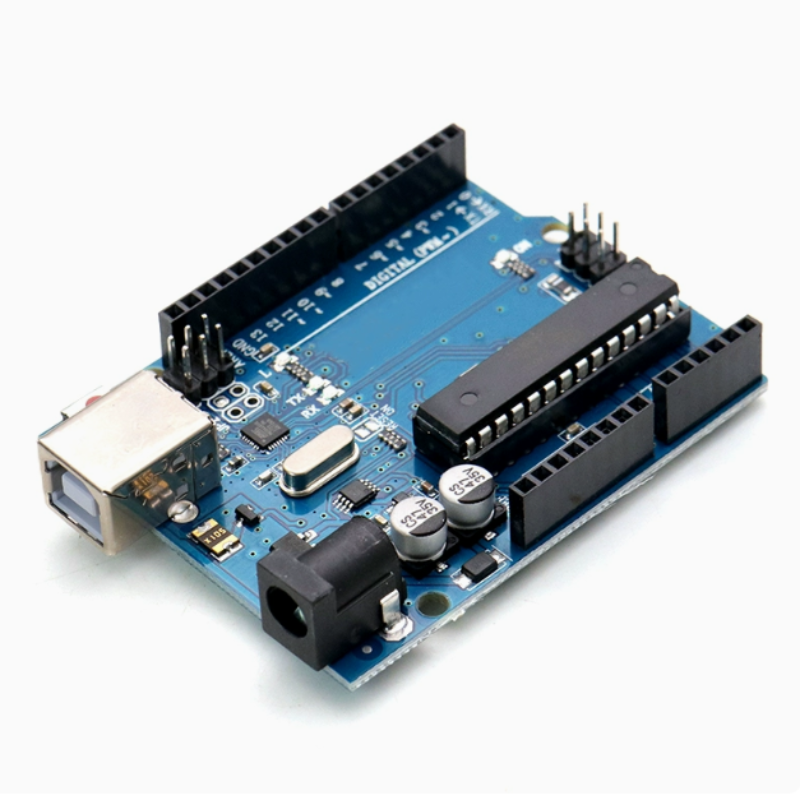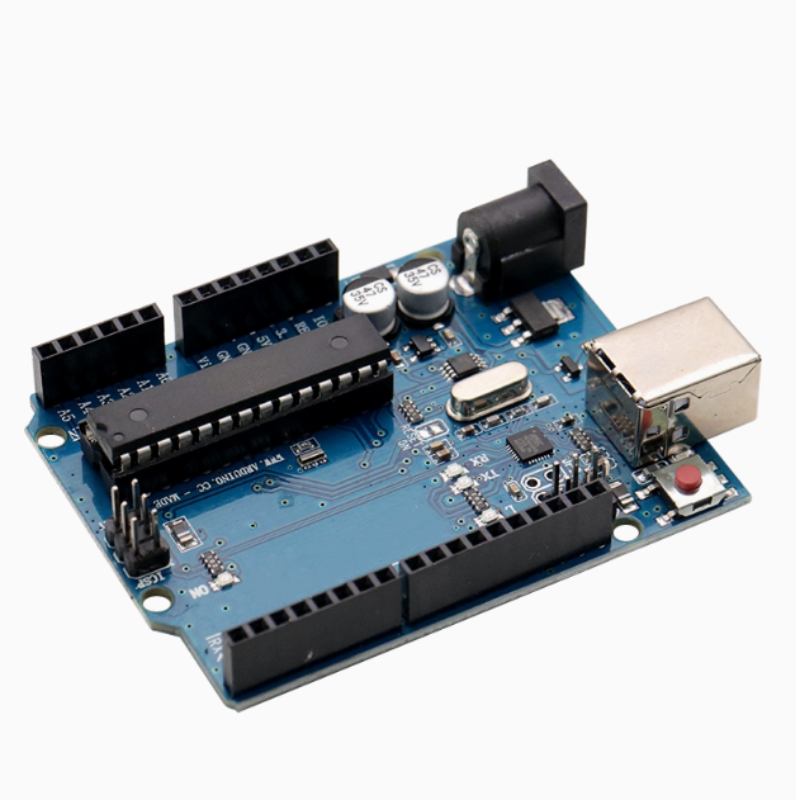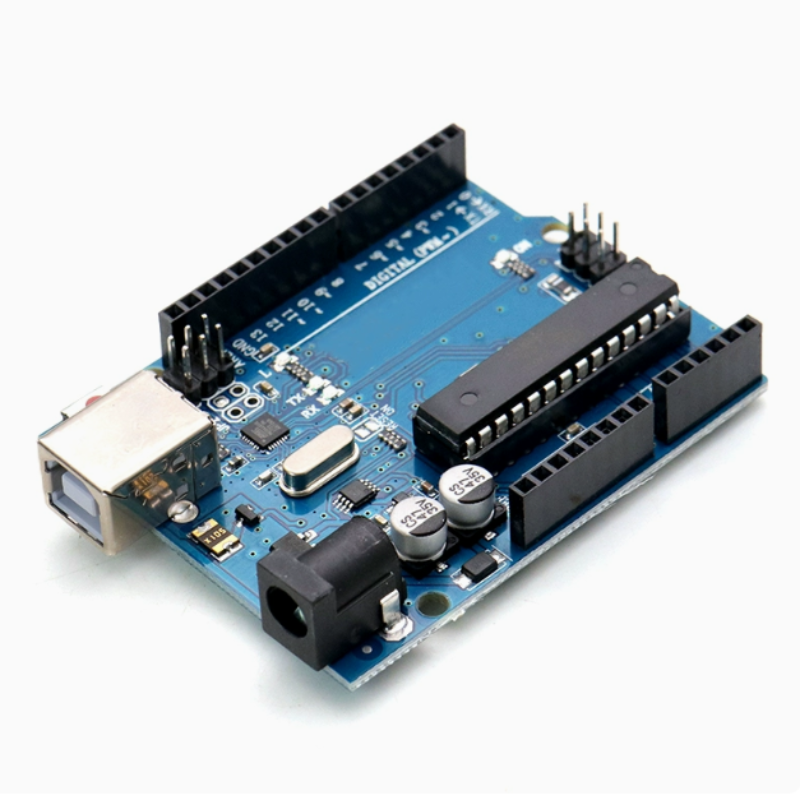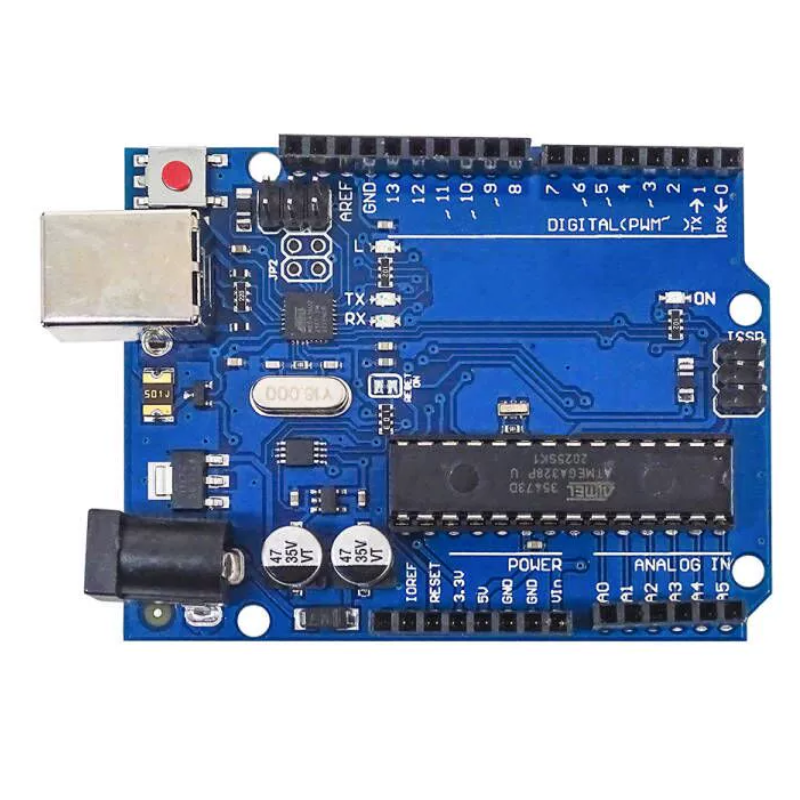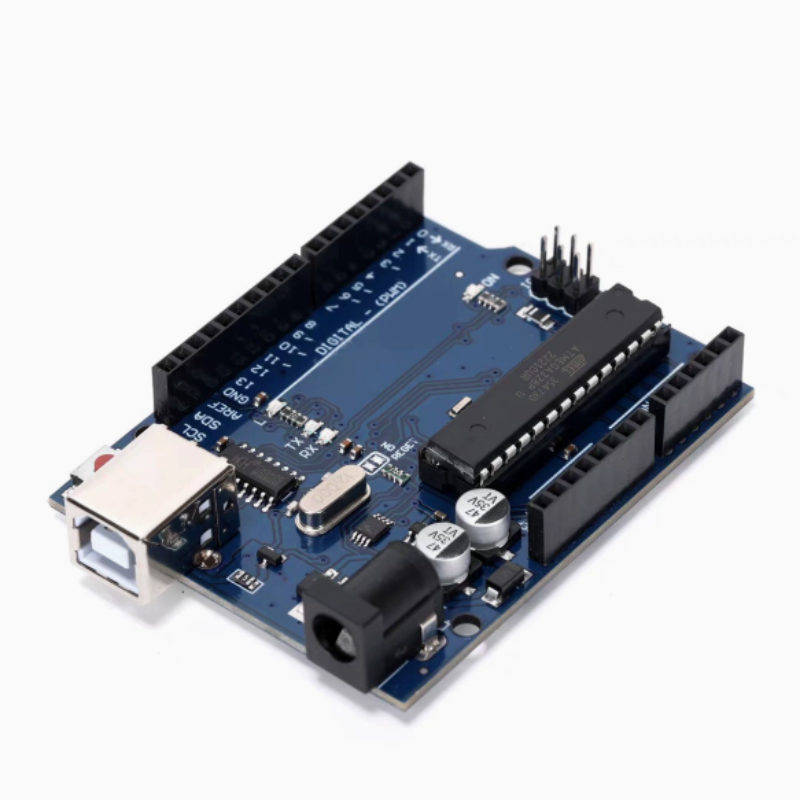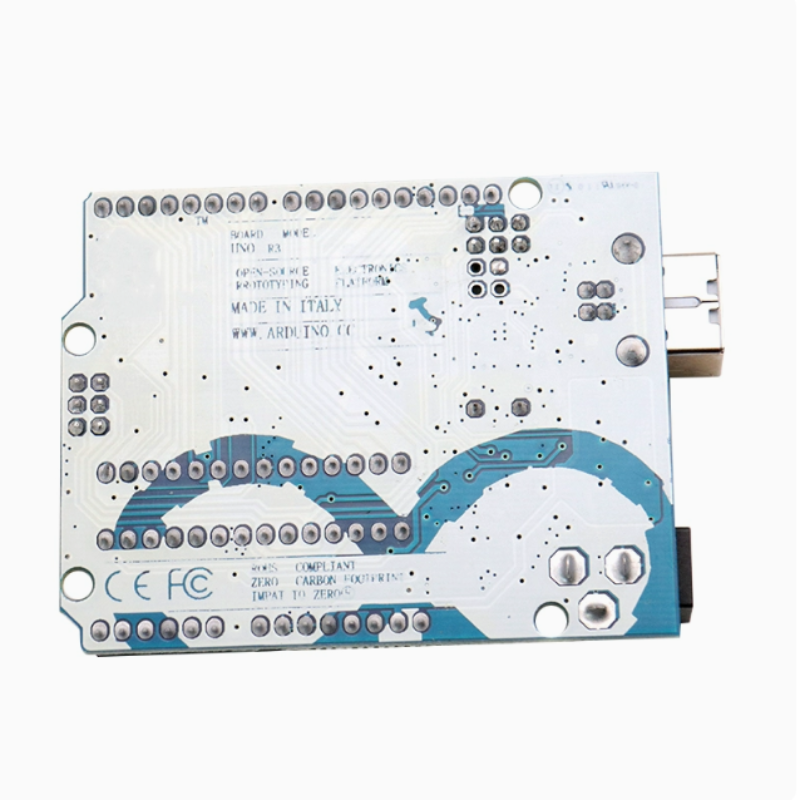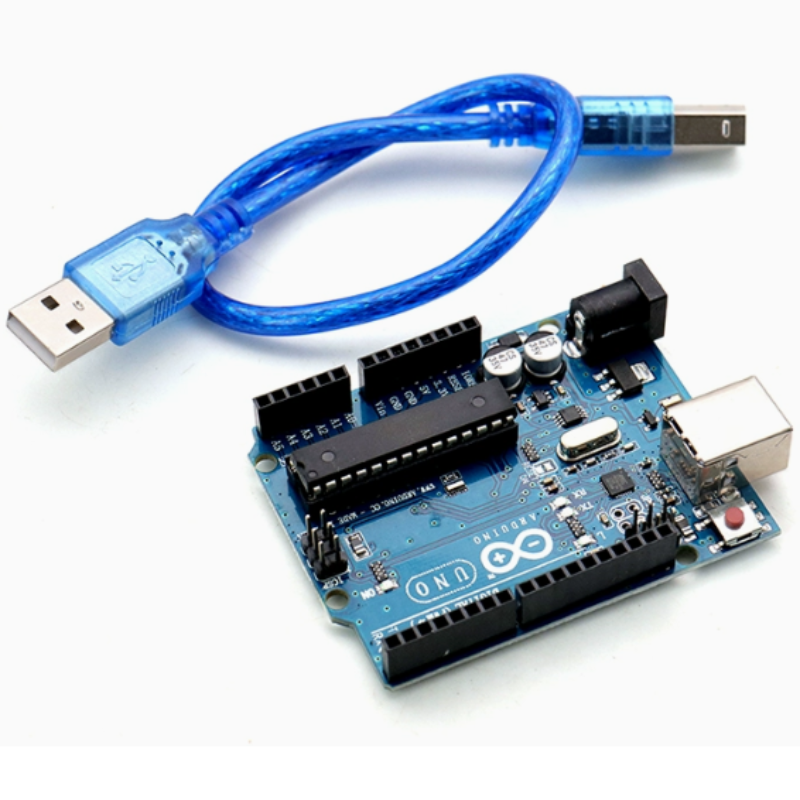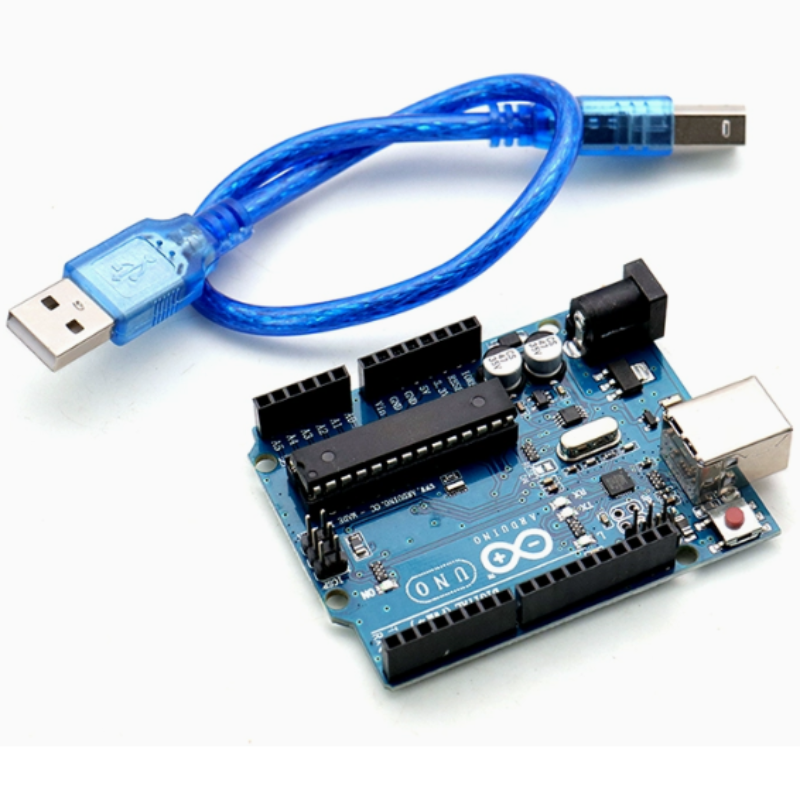The Official Version Of The For UNO-R3 Development Board Is Compatible With The ATmega328P Single-Chip Microcomputer Module
The Official Version Of The For UNO-R3 Development Board Is Compatible With The ATmega328P Single-Chip Microcomputer Module
Regular price
¥15.27 CNY
Regular price
¥0.00 CNY
Sale price
¥15.27 CNY
Quantity
Couldn't load pickup availability

Official version single-chip microcomputer
Compatible with arduino to control the ATmega328P single-chip microcomputer module
Product Introduction
Arduino can simply use sensors and various electronic components (such as LED lights, buzzers, buttons, photoresistors, etc.) to create all kinds of interesting works. This product is developed using a high-speed processing controller (ATMEGA328P), and both the operation interface and gold are very simple and easy to understand, making it highly suitable for beginners to learn.
product function
| Main control chip | ATMMega328P |
| Working voltage | 5V |
| Digital I/O pins | 0-13(6 supporting PWM) |
| Memory | 32KB |
| SRAM | 2KB |
| Analog input pins | A0-A5 |
| Input voltage | 7-12V |
| EEPROM | 1KB |
| Clock frequency | 16MHZ |
1. Pin changes: Two I2C pins were added next to the AREF pin (SDA and SCL are just copies of Analog4 and 5, not additional 12C interfaces). Additionally, two pins were added next to RESET, one being IOREF. This pin enables the expansion board to use the on-board voltage. It only informs the expansion board of the current on-board voltage (for example, UN0 is 5V, which can be regarded as a copy of the power pin and does not provide a pull-up position). The other one is a placeholder pin for future use.
2.More stable REST circuits. The position of the RESET button has also changed. It has been moved to the corner of the board near the USB interface, making it more convenient to press.
3. The ATmega16U2 has replaced the 8U2. This does not mean that the R3 with 16kflash can make your code run faster. This update is for the USB interface chip service. Theoretically, it enables UNO to simulate USB HID, such as MIDI/Joystick/Keyboard.
Products photography
